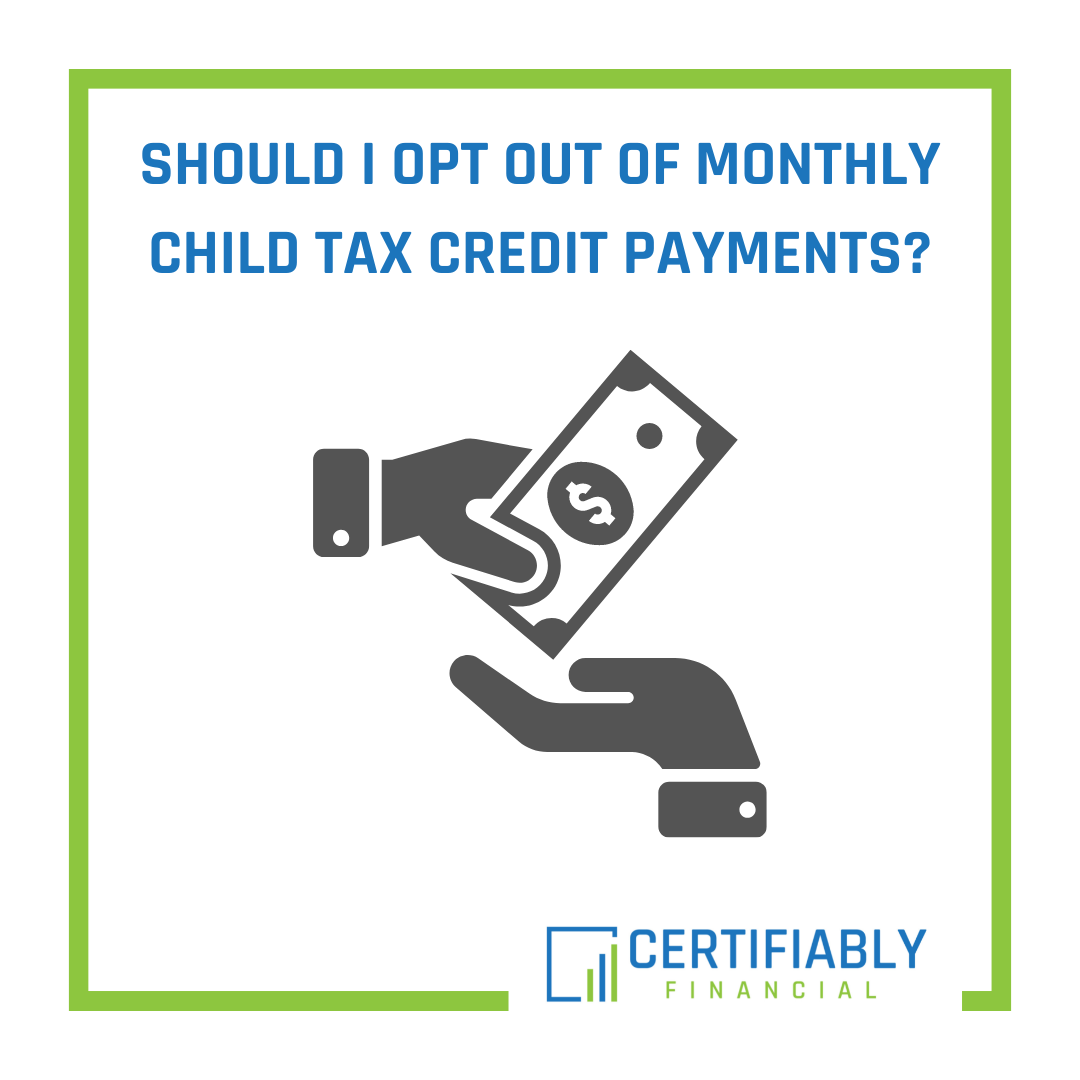As I wrote last week, you may be set to receive Advance Child Tax Credit payments if you received a Child Tax Credit on the last tax return that you filed and your income qualifies you for the payments. You should have received a letter from the IRS about this if you qualify. Essentially, (again, if you qualify) the IRS will be sending half of your estimated 2021 Child Tax Credit as advance payments from July through December. If you want to learn more about Advance Child Tax Credit payments, you can find the article here.
How Will Receiving Monthly Child Tax Credit Payments Affect Me?
This new law that has been enacted only for 2021 has left some people to wonder whether they should accept the payments or if they should opt of the payments to take the full credit on their tax return. While receiving payments throughout the year rather than receiving a credit at filing sounds like it could be helpful, it could actually be counter to what some people would want to happen.
The advance payments will decrease the amount that will be knocked off of your taxes (by the Child Tax Credit) when you file your tax return. For example, if you received a Child Tax Credit of $2,000 in 2020 you may be expecting to receive a credit of $3,000 if your child is age 6 to 17 or $3,600 if they’ll be younger than 6 by December 31.
Let’s assume that you would receive a credit of $3,000 in 2021 for a child age 6 to 17. If you don’t do anything, then the IRS will send you half of that ($1,500) as monthly payments from July through December (payments of $250 per month). You would take the other half as a credit on your 2021 tax return. So, while you would receive $1,500 over the final 6 months of the year, you would actually receive a credit that is $500 less than what you received on your tax return last year.
Should I Opt Out of Advance Child Tax Credit Payments?
Why might this be an issue?
People often see their tax refund as a bonus or extra spending money. Let’s continue with the example above. If you broke even when you filed your 2020 tax return (assuming everything else remains constant, which it doesn’t in actuality), then you could end up owing at tax time if you did not opt out of the advance payments because the Child Tax Credit that you will take on your return will be less.
If you owed when you filed your taxes last year, then you could potentially be even deeper into the hole. If your income will be significantly higher in 2021 than it was in 2020, then you may want to consider whether receiving the payments or taking the entire credit at filing makes sense.
The only true accurate way to project how taking monthly payments would affect how much you owe or are refunded is to run a tax projection.
You Can Opt Out of Advance Child Tax Credit Payments
The IRS has provided an online tool to opt of out monthly payments so that you receive the full credit on your tax return. You can find the tool here: IRS Child Tax Credit Update Portal.
By suspending the payments, you will be able to take the credit against taxes on your tax return, rather than receiving the money throughout the year. However, given that this article is being written in July after the first payments have gone out, you will at least already receive that that first payment.
Opting Out Depends on Your Personal Situation
Taxes are very personalized and depend on many different factors. There is no one size fits all approach to determining whether you want to receive the default monthly Child Tax Credit payments throughout the year or opt out of them to receive the full credit at filing. Whether you want to use a test as simple as whether you owed at filing or received a refund or if your income will be significantly higher in 2021 than 2020, it may be wise to take some time to think through your situation and figure out which option makes the most sense.

